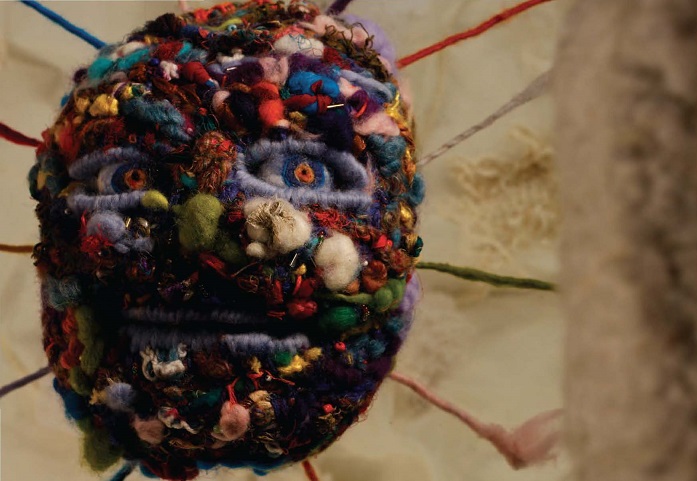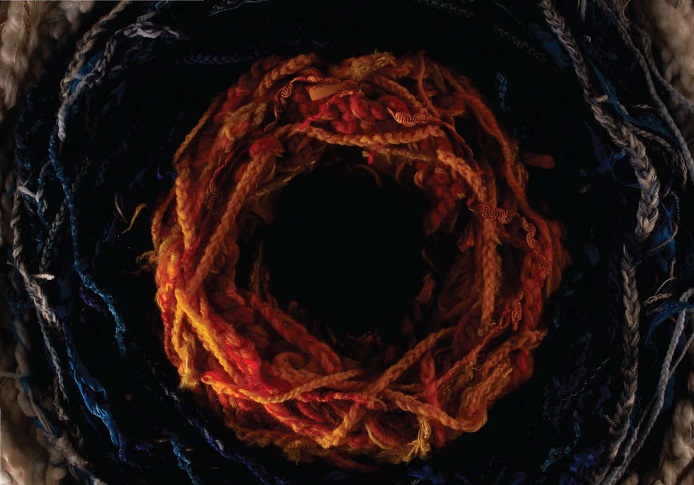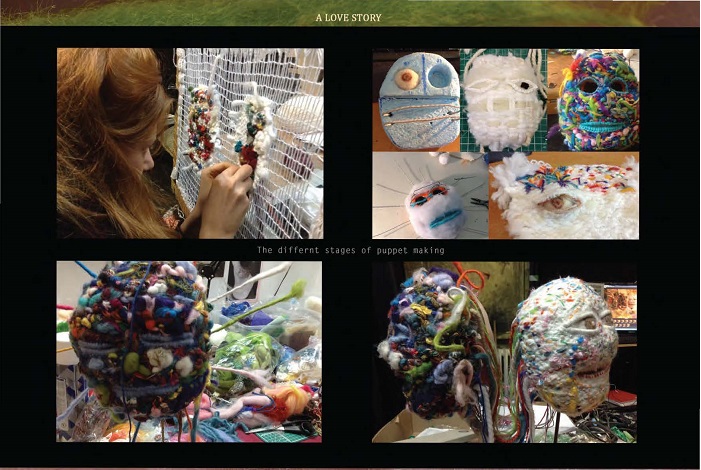The concept of love is quite volatile in itself and to explore it through creative eyes, a gargantuan task.
The same subject was picked up by Anushka Kishani Naanayakkara, from National Film and Television School (NFTS), who decided to portray it through an interesting, experimental method, which happens to be one of her likeness. ‘A Love Story’, which recently won the Best British Short Animation Award at BAFTA 2017, explores the concept of love through the method of stop-motion. What’s especially intriguing about the movie is the mode of storytelling and the substances used to do so. The two characters featured in the seven minute short film are completely made of wool (and other textile products), woven together in a beautifully uneven world.
So, what is the film really about?
Here’s the official description:
“Told through the medium of stop-motion , A Love Story follows two characters , cocooned in their love, who go on a heart-breaking journey of self discovery. Believing themselves to live in a world without sharp edges, instead they find hardship in a sudden sickness that infects one of them. As the journey from lover to carer and back again grows from unlikely to seemingly impossible, these two creatures must make some hard decisions about how much of themselves they can give, without compromising their identity.
The richly textured world, made from soft, cloud-like fabrics, is a deceptively innocent space for the raw pain of the lovers as they fight tooth and nail to hold on to what they once had. Their woven faces are kissed, knotted, ripped and torn in equal measure, ever-weathering in the harsh reality of love. It’s a love story, but not like you’ve seen before.”

Speaking to AnimationXpress, the director, Anushka Kishani Naanayakkara (fondly called as Nush) provided a metaphoric sketch on how the film was created.
The idea of the film seemingly lies close to Nush’s self as she says, “The film was heavily inspired by a personal experience and at the start of development; I was quite reluctant to admit that it was inspired by personal experience. I felt it would appear quite self-indulgent. But then I came across ‘Amy’: the documentary about Amy Winehouse by Asif Kapadia. Watching her talk about why she chose to write such personal songs was inspiring, and made me want to be more open about my own feelings. Although, I did find it strange animating real life, as it unfolded.”
With 30 people working on the film at different stages, the feature attempts to portray a story surrounding two beings, how they fall in love and how they hold on to it. But as we mentioned above, the concept of love is subjective and might appeal everyone differently and it seems like the creators did keep the same fact in mind. “Initially we wanted to make a film that could offer support or direction to people who found themselves in a similar position. But soon we realised that each relationship is individual, and has its own ending. So we then decided to just make a truthful story that hopefully people could relate to.”
However, to do justice to a film portrayed through not-so-usual methods, it took a lot of effort as going about with the script was pretty tricky as well. As Nush says, “Initially I was unsure about collaborating with a screenwriter because my style is quite experimental and I had no idea how we could work together. But Elena (who is the screen writer) really embraced the idea of the two characters in a woolly world. So development, although stressful, was exciting because it was the two of us stuck in the same world. We used post-it-notes so we could move the story beats around. We also came up with a language for the world to express the characters emotions through the threads. We even envisioned the film as a real life scenario. As the film reflected a personal experience, the original ending, soon became un-relatable. So, development went on till the end of production, with the animatics going through numerous changes.”
The imagery for such a feature has to be curated carefully as the concept is pretty abstract at first and thus storyboarding becomes one of the most crucial parts to breathe life to the story.
“I always try to draw the images that are clear in my head first. But they are usually very rough and then try to develop more images around these key images. I find that my character design usually comes together through the storyboarding process.
As a stop frame animator, I wouldn’t say my strength lies in drawing. Therefore, I initially drew some rough storyboards by hand, for my own use. Then I went straight into animatic, working closely with the editor Joseph Comar.”

No task is devoid of its difficulties, and ‘A Love Story’ was not an exception as well as the director narrates, “Most of the shots were challenging to animate, even the simple ones. If I had to pick one shot, it would be the scene where the puppets dance around each other. In this scene not only did I have to try moving the threads towards the camera, while the camera was moving away, but slow-motion of the puppet moving across the screen and rotating the puppets whilst they burst through a cloud. It took me six weeks to complete it.” Luckily for Nush, help was round the corner at NFTS. “In this shot I also became stuck on how to animate the puppets dancing. It was not a shot you could act out in real life either. So I decided to visit the VFX department, and see if they could put together a previse for me. The previse not only gave me structure and pacing, but it also gave me the freedom to play with the shot. As it was two characters falling in love and I felt that having too much control over the puppets would take away the energy between them.”

Among the two distinctly beautiful films nominated from NFTS for this year’s BAFTA Awards, ‘A Love Story’ took home the accolade while ‘The Alan Dimension’ did not manage to make the cut. For now Nush says that she enjoyed her time with the team working on this feature and hopes to get back with them in the future for some project.
She did not mince her praises for all the support she has received from the organisation (NFTS) as well. She concludes stating, “The school was extremely supportive towards the making of the film. They provided creative and technical support throughout the process, as well as allowed the team to complete the film when it ran over schedule.”
